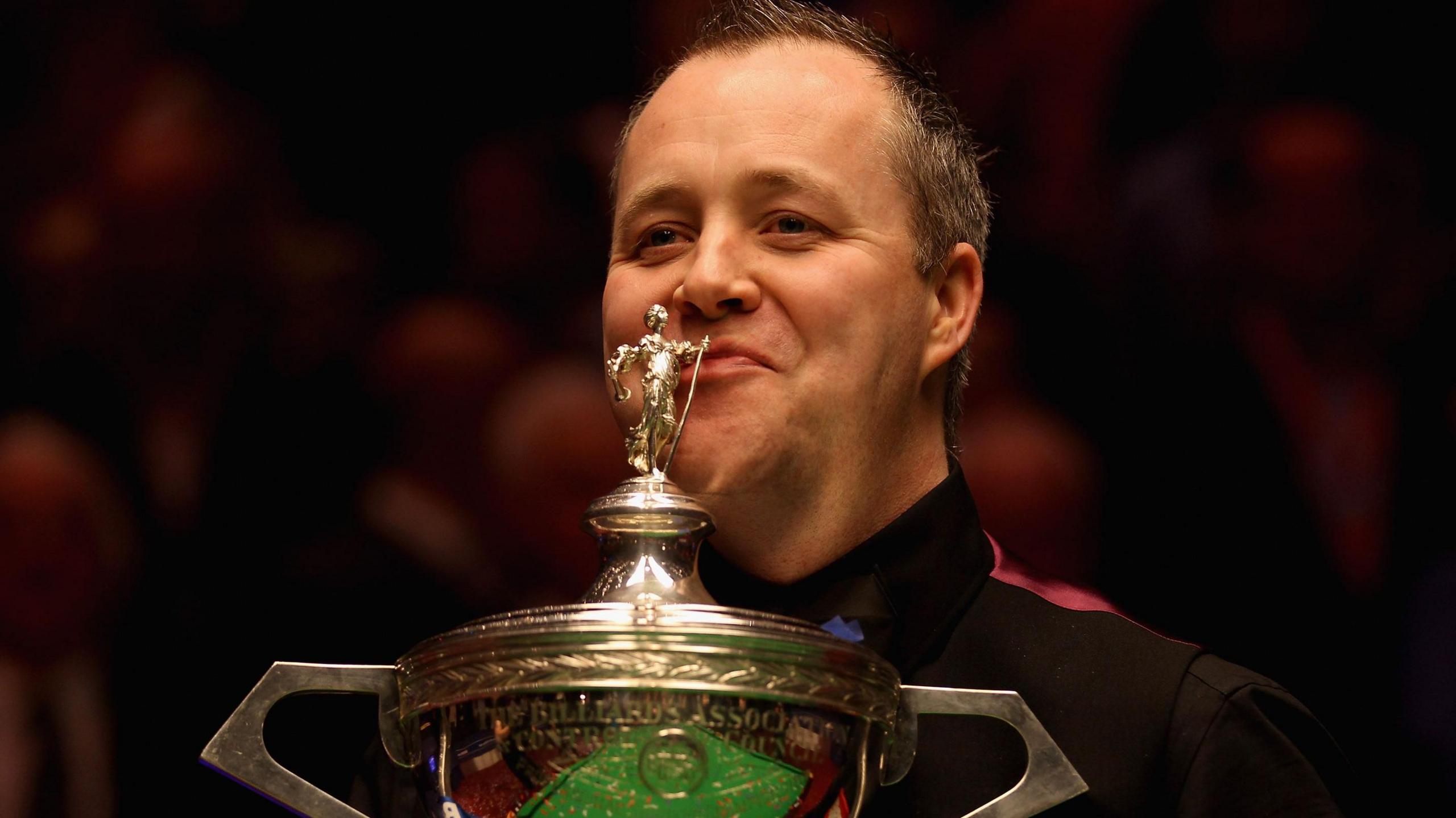Crucible departure 'inevitable', says Higgins

Higgins last won at the Crucible in 2011, losing in the final three times since
- Published
As John Higgins prepares for his 30th World Championship appearance, the four-time champion thinks a move away from the Crucible is "inevitable".
The famous Sheffield venue has staged snooker's biggest competition every year since 1977, with the current agreement due to expire in 2027.
Higgins has never missed the event since his tournament debut in 1995, taking the top prize in 1998, 2007, 2009 and 2011.
World number one Ronnie O'Sullivan is among those saying it should be staged elsewhere, with Higgins telling BBC Sport: "I think it's inevitable. The landscape of the snooker world will have changed in three years.
"I'm just lucky that I've won it here. It will be sad to leave, it's been a massive part of my life.
"I think if you asked other players who have never lifted the trophy here, that would be something they would probably regret for the rest of their lives.
"The bank balance might not say that [for future winners], but if you look back on the history and the champions before them, they would love to have won it here because it's special. It's the best place to play snooker."
Vafaei Crucible criticism 'almost sacrilege' - Murphy
- Published22 April 2024
Crucible 'smells' and event should move - Vafaei
- Published21 April 2024
Snooker must 'embrace' new opportunities - Hearn
- Published19 April 2024
There has been speculation about the World Championship possibly moving to Saudi Arabia, China or a larger venue in the UK.
The Crucible's capacity of just under 1,000 spectators means demand for tickets often far exceeds supply.
Higgins, 48, opens his 2024 title bid against Jamie Jones on Wednesday, calling the Welshman who beat former champion Neil Robertson in qualifying a "tough, tough player".
"I feel good about my game and I can't wait to get out there and play," said the Scot. "I just want to immerse myself in the tournament and give it everything.
"I still get the same feeling every time I come here, there's still the same buzz.
"I'm just proud that I'm still competing 30 years later."